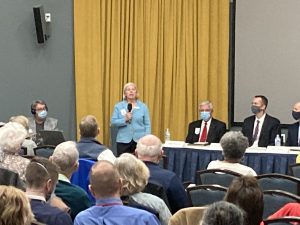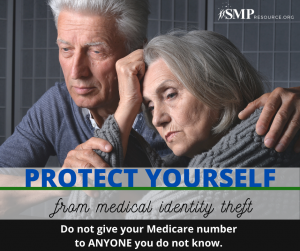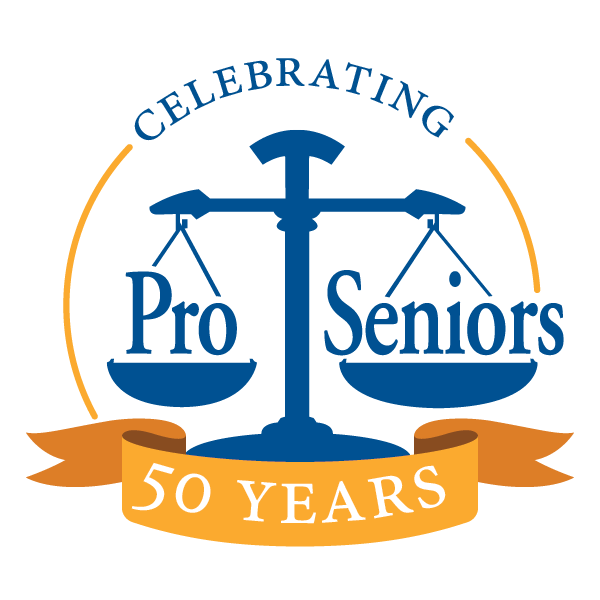 Did you miss the Consumer Protection Fraud Prevention Forum?
Did you miss the Consumer Protection Fraud Prevention Forum?
If you missed the Consumer Protection Fraud Forum in March, you can listen to the podcast: 2022 Medicare Fraud Forum here.
Our panel of experts included representatives from: Office of the Ohio Attorney General, Federal Trade Commission (FTC), Federal Bureau of Investigation (FBI), Ohio Department of Insurance, Social Security Administration and more!
Did you pick up the list of contact information for our expert panelists? If you missed it, contact Jenni to receive the list electronically or by mail (Jenni@proseniors.org).
Pictured: Lisa moderating the panel with our audience at Maple Knoll Retirement Village auditorium.
 Avoid Scams
Avoid Scams
Your Medicare number is like gold. Stay informed about Covid-19 scams and avoid giving out your Medicare number and other confidential information. If you suspect that you have been targeted by a Medicare scam, please call Ohio Senior Medicare Patrol at 513-458-5522 / 800-488-6070, Option 4, or report online.
Get our free Ohio SMP app on your smart phone to receive updates of these scams as we learn more. Share the additional Covid-19 resources at the links below.
- Covid-19 Consumer Tip Sheet from the National SMP Resource Center
- Ohio SMP Covid-19 Infographic
- Ohio SMP Coronavirus Scams Fraud Alert
- Learn more about Covid-19 scams at the SMP Resource Center.
Each year, billions of dollars are lost to Medicare and Medicaid programs due to error, fraud, and abuse. SMP projects are dedicated to promoting consumer awareness, preventing elder victimization, and working to implement community partnerships to prevent Medicare and Medicaid fraud, error, and abuse. Our message is simple: Protect, Detect, Report.
Protect yourself from Medicare errors, fraud, and abuse
Protecting your personal information is the best line of defense in the fight against health care fraud and abuse. Every day, consumers get ripped off by scam artists. You can make a difference!
Here are some ways to take an active role in protecting your health care benefits:
- Treat your Medicare, Medicaid and Social Security numbers like a credit card number. Never give these numbers to a stranger.
- Remember, Medicare doesn’t call or visit to sell you anything.
- Don’t carry your Medicare or Medicaid card unless you will need it.
- Record doctor visits, tests and procedures in your personal health care journal or calendar.
- Save Medicare Summary Notices (MSNs) and Explanations of Benefits (EOBs). Shred the documents when they are no longer useful.
Even when you do everything right, there is a chance you could be a target of health care fraud. There are a lot of ways that your personal information can be used without your permission.
Here are some steps you can take to detect potential errors, fraud and abuse:
- Always review your Medicare Summary Notices and Explanations of Benefits for mistakes. Access to your current Medicare account is available 24 hours a day at www.MyMedicare.gov.
- Compare your Medicare Summary Notices and Explanations of Benefits to your personal health care journal to make sure they are correct.
- Look for three things on your billing statement:
- Charges for something you didn’t get,
- Billing for the same thing twice, and
- Services that were not ordered by your doctor.
